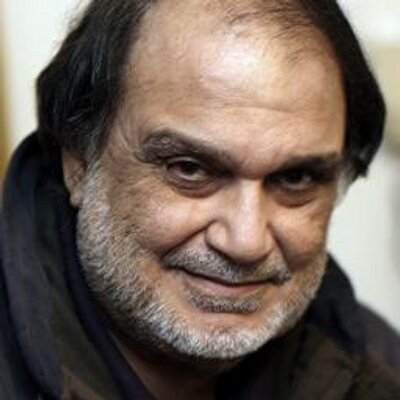By Khaled Ahmed
Novelist Nisar Aziz Butt is one of those who challenged the ideologies invented by men
Islamabad celebrated novelist Nisar Aziz Butt, 89, on May 30. Her brother Sartaj Aziz, adviser to the prime minister on foreign affairs, talked about Nisar, revealing details about this extraordinary woman who wrote four great novels in Urdu. She was born in 1927 near Peshawar in a Kakakhel family, traditionally devoted to spirituality and learning. She and her brother were still toddlers when their mother died at 22. Both responded to the tragedy of being alone in the world by doing well at school, routinely standing first in class. She matriculated with first position in the old Frontier Province and shifted to a Lahore hostel to study further. Thereby hangs a tale.
The time was close to the 1947 Partition. Nisar’s inspirational principal at the Islamia College for Women, Cooper Road, Lahore was Veda Thakurdas, a Christian with a degree in mathematics from Cambridge. It was because of her that Nisar pursued maths and, eventually, stood first in Punjab with a Master’s in mathematics. But in 1947, when the border was first erected between Pakistan and India, Thakurdas was visiting New Delhi and got stuck there.
Ruhafza Hyder in her memoir, Dilli Yaad Aati Hai, writes: “Sajjad (her diplomat husband) provided safe passage to a stranded Christian lady Ms Thakurdas, principal of Islamia College Cooper Road Lahore, but unfortunately when she returned to Lahore, Anjuman-e-Hamayat-e-Islam refused to continue her in her job and she had to opt for India.”
After the Islamic charity organisation that funded Cooper Road College rejected Thakurdas, Nisar approached the wife of the prime minister of Pakistan, Raana Liaquat Ali Khan, for help but she got no response although her husband, Khan, had recently reassured the non-Muslims in the Constituent Assembly that they would not be discriminated against. Short-story writer Manto wrote his sketch on the “morning after” Pakistan, noting how suddenly the Pakistani man had become narrow-minded after 1947.
In 1948, Thakurdas became founder-principal of Miranda House Girls’ College in New Delhi. Nisar was soon diagnosed with tuberculosis and had to retreat to a sanatorium. Thakurdas actually asked her to come to New Delhi where she would receive proper treatment — and be also married off to a rich Muslim from Ghaziabad! And when Nisar shifted to Lahore’s Punjab University to do her BA with mathematics, another charity college run by the Presbyterian church asked her to teach at its Kinnaird College “no matter if she is a non-Christian”!
Why is it often the women who challenge the fallout from ideologies invented by men? Farahnaz Ispahani has gathered more evidence of men blindsided by communal politics in her book, Purifying the Land of the Pure: Pakistan’s Religious Minorities (2015). She was a member of the National Assembly from Pakistan People’s Party that had apostatised the Ahmadi community in 1974 through a constitutional amendment that will forever shame the country and its citizens. Today, Ahmadis get persecuted and killed by “true” Muslims while the law winks. Pakistan continues to shock the world.
Historian Ayesha Jalal in her 2001 book, Self and Sovereignty: Individual and Community in South Asian Islam since 1850, demonstrates the irony of Pakistan’s callousness towards Christians while discussing the Muslim League’s claim on Gurdaspur. The claim was made valid by the support of the Christian inhabitants of Gurdaspur, led by S.P. Singha, who thought the Muslim state would treat his co-religionists better than a Hindu-majority India. Their support, including the support of the Ahmadis of Gurdaspur, made the Muslim League position there as strong as 60.53 per cent in Batala. All Christian members of the Punjab Assembly had voted to stay inside Pakistan.
Ispahani comes from a family of brilliant individuals who were very close to Jinnah and believed him when he stood up in the Constituent Assembly on August 11, 1947, and proclaimed Pakistan as a secular country in which religion will not be the business of the state. Almost symbolically he said this three days before Pakistan became Pakistan! As Ispahani tells us, hardly anyone in his party agreed with Jinnah. Liaquat Ali Khan, who sounded modern, silently dissented and top civil servants, Ghulam Muhammad and Chaudhry Muhammad Ali, were actually offended: They were sure Pakistan would have to be an Islamic statewith religion informing the lives of its population.
What should Pakistan do with these “disobedient” women? The Council of Islamic Ideology, a constitutional adjunct to the government, last month came up with the answer: Their husbands can beat them up, albeit lightly, if they think they are being disobedient!



























